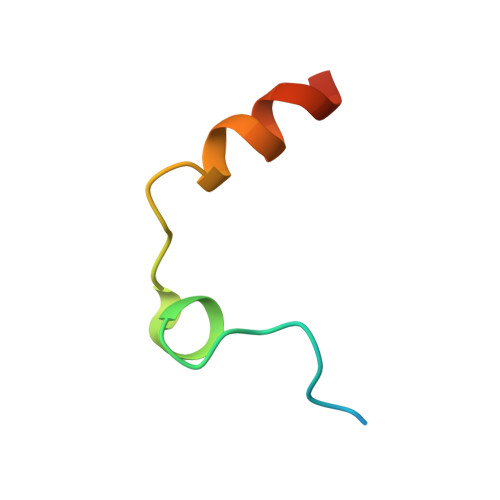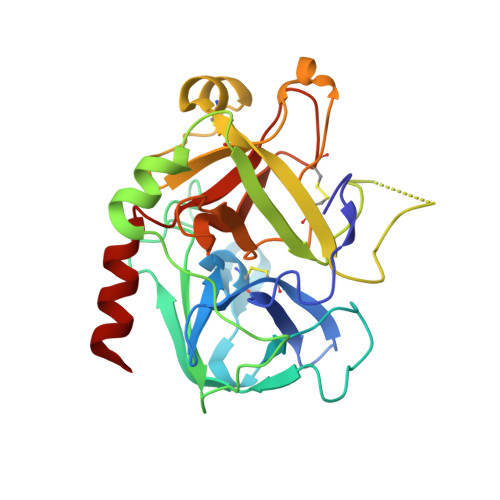Synthesis and direct assay of large macrocycle diversities by combinatorial late-stage modification at picomole scale.
Habeshian, S., Merz, M.L., Sangouard, G., Mothukuri, G.K., Schuttel, M., Bognar, Z., Diaz-Perlas, C., Vesin, J., Bortoli Chapalay, J., Turcatti, G., Cendron, L., Angelini, A., Heinis, C.(2022) Nat Commun 13: 3823-3823
- PubMed: 35780129
- DOI: https://doi.org/10.1038/s41467-022-31428-8
- Primary Citation of Related Structures:
6Z48 - PubMed Abstract:
Macrocycles have excellent potential as therapeutics due to their ability to bind challenging targets. However, generating macrocycles against new targets is hindered by a lack of large macrocycle libraries for high-throughput screening. To overcome this, we herein established a combinatorial approach by tethering a myriad of chemical fragments to peripheral groups of structurally diverse macrocyclic scaffolds in a combinatorial fashion, all at a picomole scale in nanoliter volumes using acoustic droplet ejection technology. In a proof-of-concept, we generate a target-tailored library of 19,968 macrocycles by conjugating 104 carboxylic-acid fragments to 192 macrocyclic scaffolds. The high reaction efficiency and small number of side products of the acylation reactions allowed direct assay without purification and thus a large throughput. In screens, we identify nanomolar inhibitors against thrombin (K i = 44 ± 1 nM) and the MDM2:p53 protein-protein interaction (K d MDM2 = 43 ± 18 nM). The increased efficiency of macrocycle synthesis and screening and general applicability of this approach unlocks possibilities for generating leads against any protein target.
- Institute of Chemical Sciences and Engineering, Ecole Polytechnique Fédérale de Lausanne (EPFL), CH-1015, Lausanne, Switzerland.
Organizational Affiliation:



















